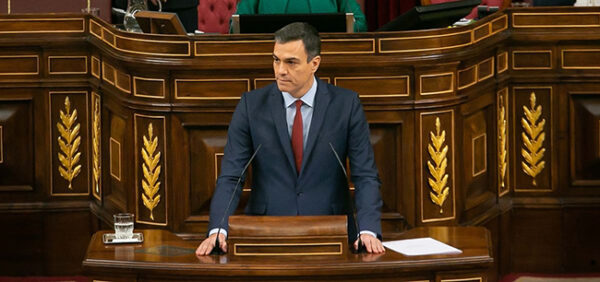Spain set to support Palestine’s bid to become UN member state

Spain will support Palestine’s bid to become a full member state in the UN, Spanish daily El Pais reported on Wednesday.
When asked about the El Pais report ahead of a NATO meeting in Brussels, Spain’s foreign minister also hinted at the same thing.
“Spain will recognize Palestine as a sovereign state, and therefore, a sovereign state has its place among all planet’s nations and sovereign states – in the United Nations,” said Jose Manuel Albares.
Earlier this week, Prime Minister Pedro Sanchez informally told journalists that Spain aims to recognize an independent Palestine before June.
Palestine also officially revived its bid to become a full UN member on Tuesday.
“It was the international community that decided to create two states in Palestine since 1947,” Palestinian UN envoy Riyad Mansour wrote in a letter addressed to Secretary-General Antonio Guterres on Tuesday.
“It is the duty of the international community along with the Palestinian people to complete that exercise by admitting the state of Palestine to membership.”
Malta currently holds the rotating Security Council presidency. Its UN ambassador recently told journalists that it will discuss making Palestine a member.
In March, Malta was one of the four EU countries, alongside Spain, Ireland and Slovenia, that announced it would recognize an independent Palestine state.
Speaking to journalists about the recognition of Palestine before summer on Monday, Sanchez said: “We should pay attention to the upcoming decisions that are being made in Brussels and New York,” he said.
However, the US is likely to veto Palestine’s UN bid. In the past, they said full UN membership should follow a negotiated peace deal.
“Our position has not changed,” the US deputy UN ambassador Robert Wood told reporters on Tuesday, according to the Washington Post.
Palestine also submitted a bid to become a full UN member in 2011, but failed to secure the required support of Security Council members.
However, the question then went to the UN’s General Assembly, where it was backed by more than two-thirds of the members, which allowed it to gain observer state status.